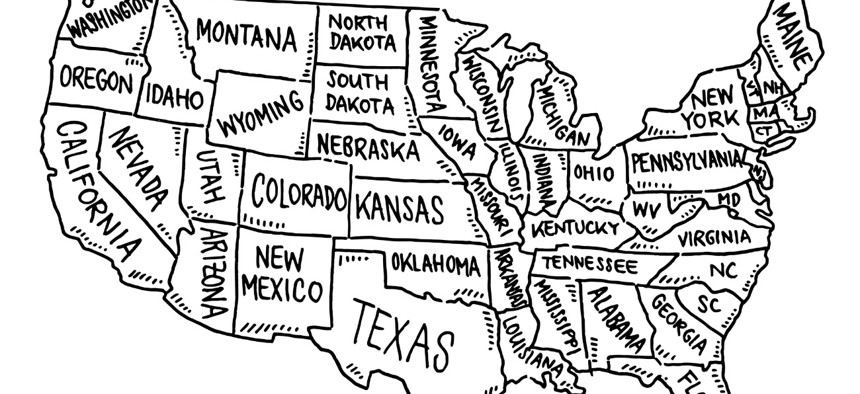
frankramspott / istock
States That Won’t Tax Your Federal Retirement Income
States levy three main types of taxes: income tax, sales tax, and property tax. You should understand all three and the impact they will have on your savings.
We all want our retirement savings to last as long as possible and reducing your tax bill can be a great way to stretch every dollar. One of the biggest factors that will determine your tax bill in retirement is where you live. There are significant tax differences depending on which state you retire in.
States levy three main types of taxes: income tax, sales tax, and property tax. You will want to pay attention to all 3 before you make a decision on where to live.
Understand Your Retirement Income
Federal retirement income typically includes a pension, Social Security, and distributions from retirement accounts (the Thrift Savings Plan, Individual Retirement Account funds, etc.). On the federal level, all three of these income sources can be taxable. At the state level, it will vary state to state.
Social Security. Many people I talk to are surprised to learn that Social Security benefits are taxable. And because most federal employees have a healthy pension and TSP come retirement time, many of them will have up to 85% of their benefits subject to federal taxes.
The good news however, is that most states don’t tax Social Security benefits. There are just 13 states that do: Colorado, Connecticut, Kansas, Minnesota, Missouri, Montana, Nebraska, New Mexico, North Dakota, Rhode Island, Utah, Vermont and West Virginia. Each state has their own criteria and structure for this taxation.
Your pension. On the federal level, the majority of your pension will be taxable. The government calculates the taxable amount by looking at how much you contributed into the system over your career and spreads that over your life expectancy in retirement. The portion of your pension calculated to be your contributions will be tax free with the vast majority (generally 90% or more) being taxable.
Here again, there are many states (14 to be precise) that do not tax pension income at all: Alaska, Florida, Nevada, South Dakota, Tennessee, Texas, Washington, Wyoming New Hampshire, Alabama, Illinois, Hawaii, Mississippi, and Pennsylvania. (Some states, such as New York, exclude federal pensions from income tax but do tax some private pensions.) Some of these states don’t have an income tax at all while others just exclude pension income from their income tax.
Your TSP distributions. As the Roth TSP becomes more and more popular, more federal employees will be able to enjoy at least some tax free income in retirement. But as of today, the vast majority of federal employees’ savings are in the traditional TSP, which means that withdrawals will be subject to federal taxes.
While most states tax TSP distributions, these 12 don’t: Alaska, Florida, Nevada, New Hampshire, South Dakota, Tennessee, Texas, Washington, Wyoming, Illinois, Mississippi and Pennsylvania. Other states exempt TSP distributions below a certain threshold from taxation.
The Best States for Federal Retirees
As you probably noticed, there are a number of states that don’t tax any of the 3 main sources of retirement income for federal employees, which can go a long way in helping money stretch as long as possible.
But often when a state doesn’t have an income tax it will make up for it with higher than average sales or property taxes. On top of that many cities have substantial taxes of their own.
While there is no perfect place to retire, moving to lower tax states can be a great way to stretch your savings for as long as possible.
Dallen Haws is a financial planner and host of the “Plan Your Federal Benefits” YouTube channel as well as a podcast at PlanYourFederalBenefits.com.
Editor's note: This article has been updated to better reflect some of the nuances in state tax policies.






